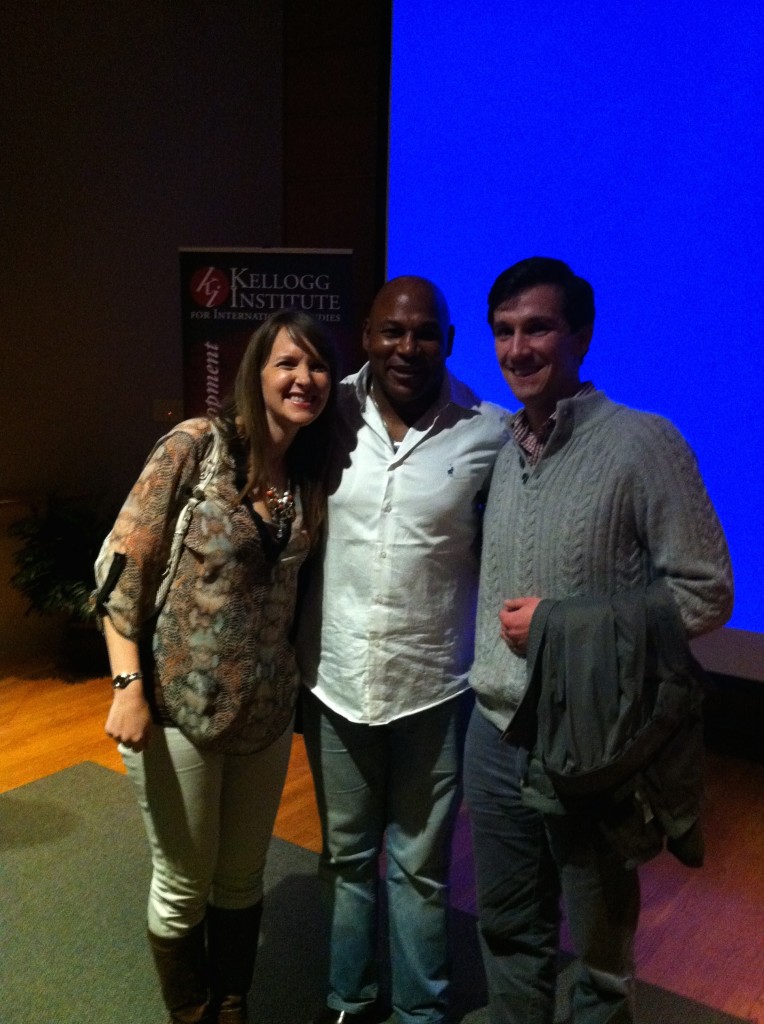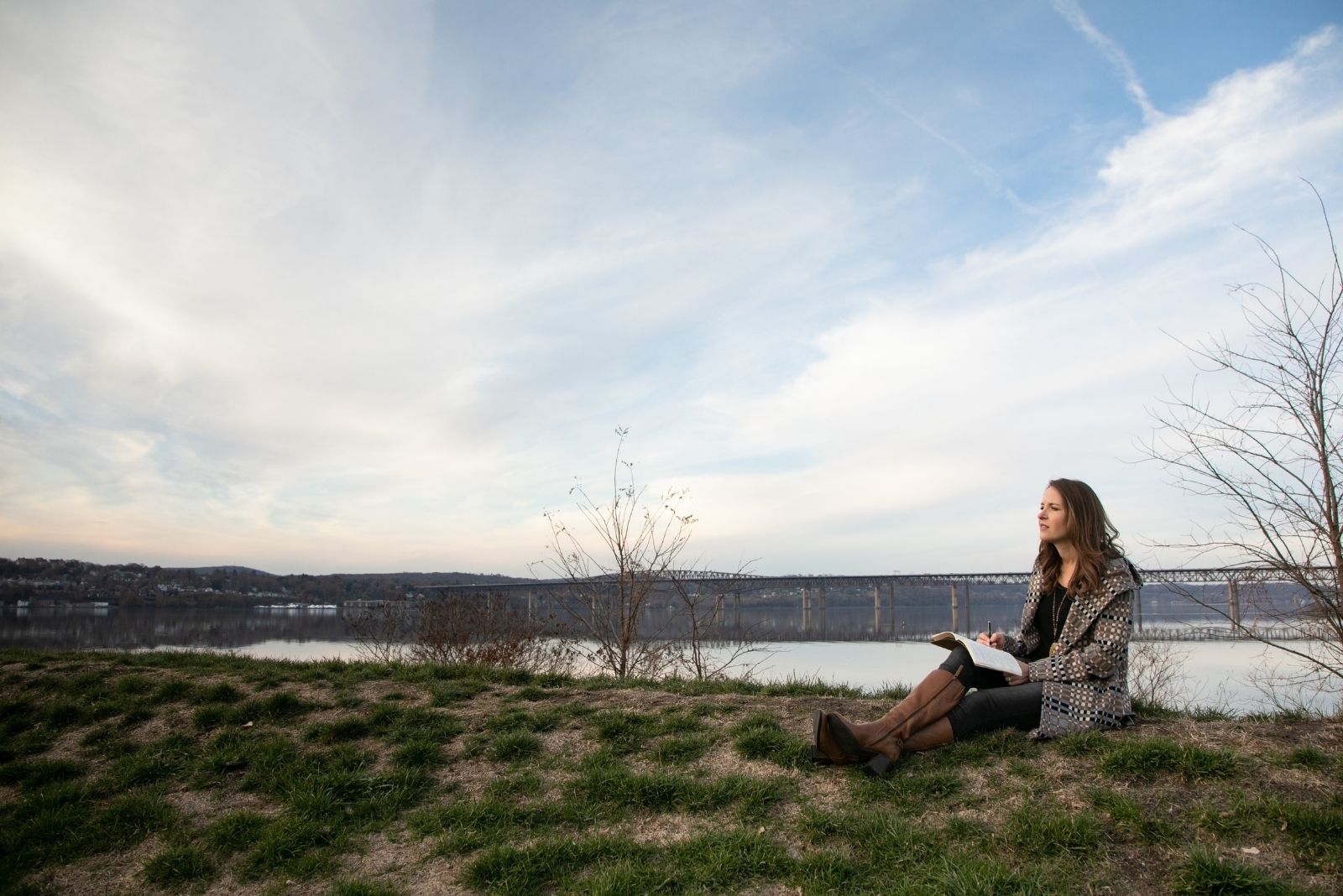 The other Sunday night, Matt and I rented the movie “Invictus” to get us ready for South Africa. It’s the feel-good sports tale starring Matt Damon as a rugby player, and Morgan Freeman as Nelson Mandela.
The other Sunday night, Matt and I rented the movie “Invictus” to get us ready for South Africa. It’s the feel-good sports tale starring Matt Damon as a rugby player, and Morgan Freeman as Nelson Mandela.
In the movie, as in life, a player named Chester Williams plays a pivotal role in post-apartheid South Africa as the only non-white player on the championship-winning national rugby team. That happened in 1995.
The day after we watched “Invictus,” Matt came back from the Notre Dame campus and said, “You won’t believe this. Chester is speaking here on Thursday.”
Three days later, there he was. At 5’9, Williams is said to have been a bit short for rugby. But 20 years after his athletic prime, he’s still a powerfully built man, with broad shoulders, a thick neck, and a shaved head.
Williams’ stature may be intimidating, but it’s offset by big dimples and a sly sense of humor. He joked that the “Invictus” actor who played him “was okay, but he wasn’t fast enough.”
Like the movie, the presentation was upbeat, and Chester Williams was extraordinarily positive. He talked about Mandela, who prized his team integration and later came to his wedding. Williams said the day the team won the Rugby World Cup, he saw a united South Africa for the first time.
But when I asked him what South Africa needs to continue progressing with Mandela gone, he said, “Acceptance.” Twenty years after apartheid ended, he added, there is still a percentage of the population that hasn’t accepted it.
The next week, another South African speaker at Notre Dame reinforced that. Ebrahim Rasool is the country’s U.S. ambassador, its most prestigious diplomatic post. Rasool is Muslim and has English, Dutch, Javanese, and Indian heritage, so he’s a prime example of why South Africa calls itself the Rainbow Nation.
Like Williams, Rasool was positive. He emphasized South Africa’s 11 official languages and flag of many colors. But after questions about things like shantytowns, protests, and violence against homosexuals, he conceded the country has a long way to go. That said, he added, conversations about race are “remarkably frank.”
“Even when Oscar Pistorius is on trial,” Rasool said, “we use it as an opportunity to understand ourselves better, why a young person would reach first for a gun.”
South African friends say both Chester Williams and Ebrahim Rasool are well-regarded back home. Both men focus on their country’s best ideals and progress toward them. Will we as outsiders see the same? Will the national conversation truly be frank and open? We’ll report back.


Interesting and timely! Wish we could have heard more when you were home.